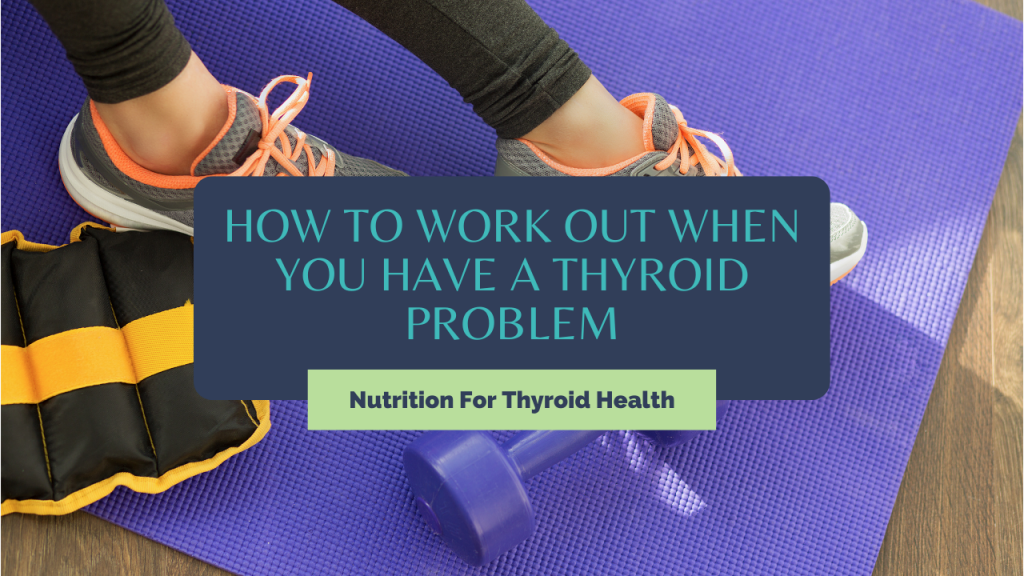Ep 07: Top 5 Issues Thyroid Patients Deal With and What To Do About It
Links/Guest Contact Info/Freebies:
NEXT WEBCLASS: https://tiffanyflaten.click/live-training-1
Tuesday, Feb 15, 2022 at 3:30 pm Central Time – The 3 Steps to Reclaim Your Thyroid Health and Crush Your Fatigue w/out Crazy Dieting or Beating Yourself up at the Gym
Get YOUR copy of the Rock Bottom Thyroid Treatment:
https://www.rockbottomwellness.com/book
Get your FREE 5 Easy Ways to Help Conquer Sleep & Banish Fatigue Guidebook here:
https://tiffanyflaten.click/guide
Facebook Group – Nutrition for Thyroid Health
https://www.facebook.com/groups/nutritionforthyroidhealth/
Schedule your FREE Thyroid Breakthrough Session today by clicking here:
https://ThyroidBreakthrough.as.me/
SUPPLEMENT STORE: https://rockbottomwellness.ehealthpro.com/
Today, we’re talking about the top 5 issues thyroid patients deal with on a day to day basis. It can be so frustrating and feel so daunting and hopeless. I talk to many who have just given up and succumbed to the mindset of “this is my new normal.” We’re told we have a new normal which equates to feeling fatigued, gaining weight, having gut issues and feeling depressed and anxious. And, we’re told it’s fine because there are meds for all of that! And, most of us have tried all of them at one time or another. They rarely work in the long term.
I’m speaking not only from a professional standpoint here but also from a personal one. My story starts with being undiagnosed for several years and then eventually being diagnosed with thyroid cancer. My thyroid was removed and I totally thought the meds would make everything better for me. While I’m grateful they keep me alive, the thyroid meds alone didn’t keep me living.
So, let’s get to the Top 5 Issues Thyroid Patients have to deal with in order to function in life and what you can do about it.
1. Fatigue. This is the kind of debilitating fatigue that only a thyroid patient understands. You can be SO tired that it hurts. I can only compare it to some of the phases of pregnancy…and try dealing with pregnancy fatigue on top of a thyroid condition? Not fun.
2. Weight Gain. Honestly, weight is a major issue people come to me for and something I’ve been frustrated with most of my life. I completely get it. But you may be surprised to learn that most people who come and work with me or join my programs care about this issue but it is typically secondary to wanting to feel good.
3. Poor Gut Health. Most people I work with have major issues with acid reflux, constipation, bloating, diarrhea or fluctuation between all of them. They take OTC meds to mitigate some of these symptoms. What I see a lot of the time is people not even knowing feeling bloated ISN’T normal. They think it’s normal to not go to the bathroom for days at a time just because this has been their experience for years. It is common for thyroid patients to have poor gut health in part because they typically have low stomach acid which makes absorption of their nutrients much less efficient.
4. Depression/Anxiety. I don’t think I’ve worked with or talked to anyone who has a thyroid condition who doesn’t feel some level of anxiety and/or depression. It seems that most live in one or the other but often it can slide between a continuum of anxiety on one side and depression on the other. Now, we all know there are times in life when we have reasons to be more anxious or depressed. What I’m talking about is long term, chronic feelings of depression and anxiety. Like fatigue, it can also be debilitating.
5. Aches & Pains. This is something I’ve only dealt with a handful of times. Unfortunately, this is not the same thing for many thyroid patients. I’m not sure the exact mechanism behind this but it results in pain in the feet, knees, muscles, as well as headaches. What I see clinically and biochemically is a cluster of nutrient deficiencies that stem from some of the other information we’ve talked about today. People with thyroid problems often have so much inflammation that comes from the types of foods we are eating, medications we may be taking, the alcohol we may be drinking – maybe to combat the stress and anxiety we feel, and those deficiencies I just mentioned. This is in addition to our thyroid glands probably not being optimized functionally speaking. This leads me to the action part of this episode…
What you can do about it…
The first thing you can do about dealing with one or all of these issues is to find someone who actually gets what this all means, has maybe actually dealt with these symptoms themselves, and looks for the root causes behind your issues. The term “root cause” probably has gotten so watered down by now that we don’t pay attention to what that really means. It’s basically how I work with people…My background is in Biology and Nutrition and it only makes sense to look at the cellular level for the causes of the issues mentioned above. When I work with people, I maybe don’t explain all the details of what we’re doing to restore their health. What I mean by this is I have a process, a method by which I help people restore their health…they may feel like this looks like eating a certain way (and it can) or taking certain supplements (and it does) but while we’re moving through this process, we’re also dealing with balancing your stress management system, how your body deals with sugar, and decreasing inflammation in your body. Often these things aren’t hard or expensive, but if you don’t know what it is or why it’s important to your overall thyroid function, health and wellness, you probably aren’t dealing with these issues properly. So, before you dive into the next quick fix or fad diet, I’m going to suggest you try these three things first. Start with one, work on it for a bit and move on to the next…It is simple. Sometimes, it’s not easy. My Thyroid Reset Method was designed for people dealing with these issues. But let me break parts of that method down here:
1. Deal with your ability to handle stress. Add mediation to your life in whatever way that looks like for you. Learn to de-stress throughout the day. Plan it into your day like you do eating lunch or scheduling a dental appointment. Make a list of things that bring you joy and pick one each day or week to make a part of your life. And do it. You need to check out from the busyness of life, drama on social media, or things that pop into your inbox you think you NEED to deal with NOW.
2. Move from eating processed foods to whole foods as much as you possibly can. The SAD is truly just sad. It is full of chemicals that wreak havoc on your health and moving towards foods in their whole state is going to be much more restorative to your health and life. Start small by making one meal per day a really good, quality meal. Example, if you eat a drive through breakfast, replace that with something you prepare at home that is made from whole foods like eggs, spinach and other vegetables. Start with where you’re at and start with the meal/snack that could use the most help in terms of moving towards more whole foods composition. This will help you with energy throughout the day and will help your body absorb quality nutrients rather than struggle to get the nutrients from low quality foods.
3. Eat balanced. What I mean by this is that you need to eat macros in balance. Start by making sure you get ample amounts of protein at each meal – 25-30 grams. Add some veggies and healthy fats to your meal and you’re set. By doing this, you’ll be optimizing your nutrient intake that fuels your thyroid and body, you’ll be creating satiety for your body which will help with energy and for making healthy brain chemicals for leveling out mood, and you’ll be balancing blood sugar so you avoid the swings in mood and stress that this causes biochemically and manifests as cravings and irritability in your behavior.
Ep 07: Top 5 Issues Thyroid Patients Deal With and What To Do About It Read More »


